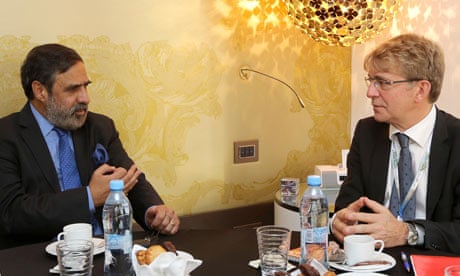Ikea's Swedish meatballs, gulped down in their thousands each weekend in store cafes around the world, are the subject of a bureaucratic tug-of-war in India that could hit local consumers' hopes of sampling the joys of flatpacked furniture in the near future.
The retailer plans to invest about £1.25bn in India to exploit demand from the growing urban middle class. Though growth has slowed recently, Asia's third-largest economy is still set to expand by between five and eight per cent this year.
Ten Ikea stores are planned over a decade, to be followed by 15 more, as part of a bigger push to enter emerging markets. However, last month officials told Ikea it was only allowed to sell furniture products, and that selling food and drink would infringe on regulations.
The government had presented Ikea's planned entry into India as a sign that foreign investors still had confidence in the country despite a series of corruption scandals and political protests over expansion by foreign firms.
More than half of India's 1.2 billion inhabitants are younger than 30, and the number of middle-class households is expected to quadruple to 150 million in the next 20 years.
In a series of controversial measures, the government has pushed to ease investment rules to let global supermarket chains build new networks of stores in India, and lifted an investment cap on single-brand retailers such as Ikea.
The changes have provoked a backlash from some political parties and domestic retailers. This month details of lobbying by the US retailer Walmart sparked a row in the national assembly.
According to local press reports, however, the commerce minister, Anand Sharma, said the government could "see no reason why [Ikea's] global model has to be changed in any manner", and said he would make sure Ikea's investment plan – including the meatballs – would be approved in its entirety. There was no immediate response from Ikea.
The store's engagement with India is being closely watched by other retailers, and many obstacles remain – cultural as well as bureaucratic. The lack of staff in Ikea stores would come as a shock to Indian consumers who expect large numbers of assistants, as would the concept of self-loading and even constructing flatpacked furniture.
"I'd go with my driver and he could be doing the loading and carrying I suppose. Then I could get someone in to build it all. But [the] point of a shop is that someone will be doing that for you, isn't it?" said Vivek Iyer, a 38-year-old lawyer from south Delhi.
